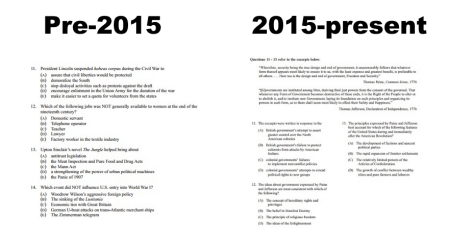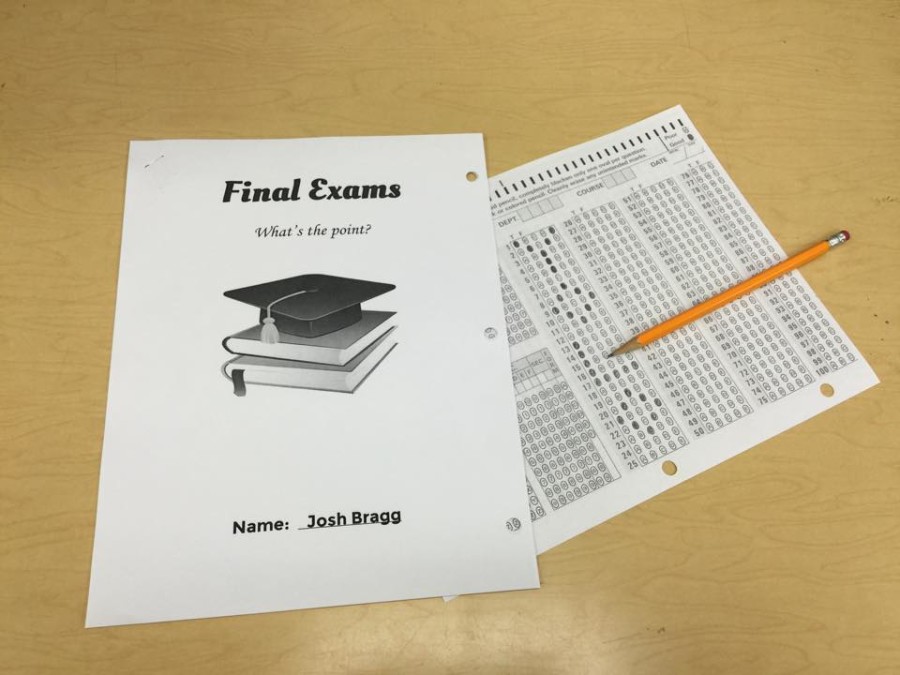At the end of each semester, LHS requires that students take a final examination for each respective course. The information and questions found in these exams are intended to be a reflection of the curriculum taught throughout the entirety of the semester. However, as education advances and new techniques and ideas are brought in, this philosophy becomes challenged more and more every day by educators.
According to Mr. Paul Reiff, the supervisor of the English department, the high school (and other test administration organizations) has been shifting more towards basing tests off of what students can do rather than what they can remember, “Back in the day, final exams focused on measuring what students could remember about what they learned over the semester. Assessment has evolved and changed over the years, and the focus is now on measuring what students can do as a result of the semester.” Mr. Reiff believes that this new shift is more reflective of the real world, where leadership qualities and practical skills are necessary in order to perform jobs at a maximum level. In a recent analysis of educational studies, Michael J. McCormick and others from Texas A&M University explained that, “Leadership education … is a high priority for colleges and universities given students’ interest in enhancing their leadership capabilities [among other traits] and employers’ demand for graduates with these skills.” One of the high school’s biggest goals is to prepare students for the next level of education, and by renovating the content of its tests, educators at LHS hope to improve its ability to accomplish such a feat.
Final exams at LHS and across the nation are starting to be based off of the format of Advanced Placement (AP) exams to improve consistency and promote application of knowledge, according to Mr. Reiff. The College Board recently revamped its United States History exam in an attempt to prompt more questions with a stimulus, which is supposed to ‘stimulate’ test-takers rather than those that simply ask for a specific, memorized item.

The previous version of the AP United States History exam (left) featured questions in the form of random trivia. However, the College Board’s renovation of the exam (right) included the introduction of stimulus-based questions.
At LHS, final exams account for one-fifth of the student’s semester grade. This means that this one test can have a major impact on a student’s grade. Final exams are huge for students who are on the border between grades (at a three-percent discrepancy, for example) and need to get their grade up, but they can also be problematic for those who are trying to hold onto their current grade and are under pressure to get a high score on their exam.
The problem with having final exams weigh heavily towards grades is that it may lead to causing students to cram, that is, the act of memorizing a bunch of information for a short period of time without actually learning or understanding concepts. According to the Editorial Board of the Amherst College newspaper, “Professors may consider reducing the weight of finals in the overall grades they assign. The tremendous weight of finals in terms of grading encourages a poor work ethic that results in cramming rather than consistency and in fewer opportunities for positive reinforcement of tasks such as attending and engaging in lectures.” This is contradictory to the recent changes made in LHS and college preparatory exams, as the cramming technique is not a model of consistency and doesn’t translate into the real world. Many teachers and scholars believe that final exams should be a reflection of knowledge rather than memorization.
LHS offers the opportunity for seniors with an A in their respective classes heading into finals at the end of the course duration to exempt from the final exam. This is a major incentive for those who have already committed to college and have checked out of school mentally. The idea that students need to have an A in the course to benefit from this offer leads them into putting forth a bit more effort than they would have normally. AP classes also offer an optional final exam at the end of the year due to the fact that students are expected to take the AP Exams in May. These options are intended to maintain the consistent dedication to learning among students throughout the entire semester.
The methods used by LHS to prepare its students for advanced learning at universities already ranks among the best in both the state and across the nation; according to the U.S. News & World Report, Libertyville High School ranks #13 in Illinois and in the 99th percentile in America. By changing its final exams’ content from a trivia-based format to a more stimulus, engaging format, LHS educators hope to improve its college preparatory programs even further and eventually get its students ready for a post-graduation career.









William Gray • Jun 2, 2015 at 6:55 pm
This a great and well thought out article!